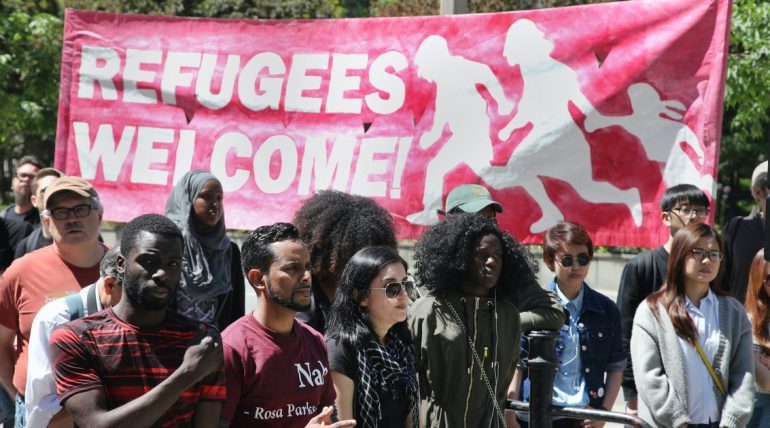
June 26, 2021
Canada immigration news: Canada is building on its reputation as a welcoming country by rolling out three new initiatives to bring in more refugees.
“When others close their doors, we keep them open,” said Immigration Minister Marco Mendicino.
“That’s why Canada is redoubling its efforts to welcome refugees. We will keep looking for new ways to support and welcome refugees because offering refuge to the world’s most vulnerable speaks to who we are as Canadians.”
Throughout the COVID-19 pandemic, Canada continued to resettle refugees, one of the few countries in the world to do so.
In the roughly six months ending May 29, Canada accepted 4,345 applications for permanent residence from pending and unsuccessful refugee claimants who worked in Canada’s health care sector and provided direct care to patients in Canada during the pandemic.
But the country’s commitment to refugees did not start with the arrival of the pandemic.
Canada Resettled 9,200 Refugees In 2020 Despite COVID-19
In 2018, Canada committed to resettling 10,000 refugees from Africa and the Middle East over the next two years and delivered on that promise despite the pandemic travel restrictions and other challenges.
Last year, the country welcomed 9,200 refugees.
On June 18, Ottawa announced it was going to do more with changes to the Economic Mobility Pathways Pilot (EMPP), the Private Sponsorship of Refugees Program, and an increase in the number of protected persons allowed to come to Canada.
“The world is facing a refugee crisis,” claimed Immigration, Refugees and Citizenship Canada (IRCC) in a statement.
“Across the globe, millions are displaced and longing for what most of us take for granted: a safe place to call home. As a global leader in protecting those who need it most, Canada welcomed nearly half of all refugees resettled around the world in 2020.”
Ottawa is pleased that the United Nations High Commissioner for Refugees (UNHCR) recently called Canada “a bright light in a horrible year for refugee resettlement.”
Protected Persons To Have Easier Time Coming To Canada
With that in mind, Ottawa is pledging to more quickly process refugee claims and boost the number of protected persons whose life, liberty, or safety is immediately threatened, accepted into Canada this year.
“Despite the many challenges of the pandemic, Canada’s asylum levels have remained stable. We are now building on this success by increasing the number of protected persons we’ll welcome this year from 23,500 to 45,000. We will also expedite the processing of applications, meaning that more protected persons can quickly become permanent residents and put down roots in their communities,” the IRCC noted in its statement.
Canadian immigration officials are also promising to settle 500 refugees and their families through the EMPP and improve the program by:
- expediting the processing of permanent residence applications for EMPP applicants in several streams, so they can start working and contributing faster;
- making it easier for refugees under EMPP to get settlement funds;
- waiving fees for permanent residence applications;
- making the application process more flexible, and;
- providing pre-departure medical services to assist with immigration medical exams.
Support Services For Private Sponsors Of Refugees
The Canadian immigration department is also going ahead with measures to improve existing pre- and post-arrival support services for private sponsors of refugees and ensure those refugees can take full advantage of the assistance offered to them.
“As a result of this process, up to $3 million over two years will be invested in supporting nine organizations,” states the IRCC.
In July, Canada will become the second Chair of the Central America and Mexico Comprehensive Regional Protection and Solutions Framework (MIRPS) support platform.
“Canada will champion the issue of protection, meaningful participation, and the empowerment of displaced women and girls,” states the IRCC. “This theme will provide opportunities for Canadian leadership in putting women, girls, and those vulnerable to gender-based violence, including LGBTQ2 communities, at the heart of solutions.”




